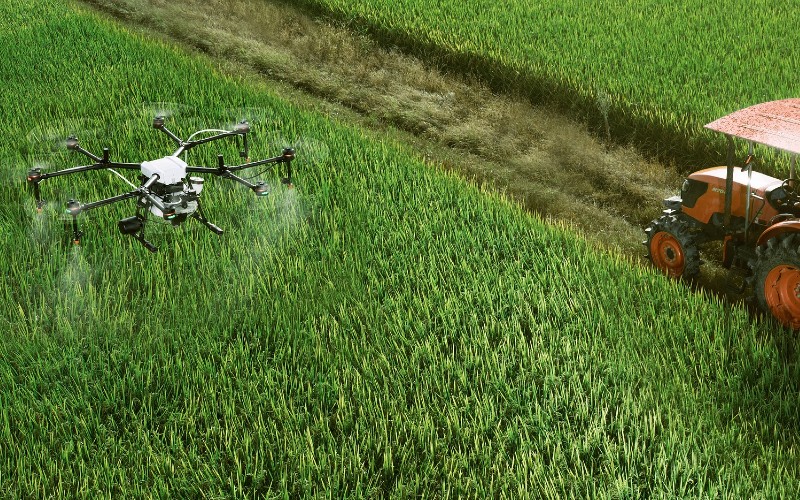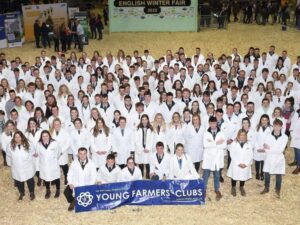A collaborative and joined up approach is needed within the agri-tech sector to enable quick advancement in sustainability, standardisation and world-leading innovation.
The path to sustainability is an incredibly poignant topic, which is why it was the focus of this year’s Agri-EPI annual conference, held at the end of October.
“All sectors are looking at net zero trajectories, as well as support mechanisms to encourage sustainability,” explained Agri-EPI CEO, Dave Ross. “This includes greenhouse gas reduction, biodiversity and land and soil improvements. There are new initiatives and support systems coming forward to drive these.”
The conference, sponsored by Nevonex powered by Bosch, hosted several panel sessions looking at what farmers want from agri-tech, how the industry is meeting this demand and how policy can help the industry.
In his keynote speech, Tim Mordan, deputy director at Defra, addressed the need for unification between support schemes and environmental benefits to help drive the agri-tech sector. “There’s ambitious industry-led development – we have world class research establishments that are doing brilliant work, but we are trying to encourage this from the bottom up, with farmer-led innovation.”
For farmers, the driver is knowing how technology can be used on farm to improve both efficiencies and sustainability.
John Pawsey, at Shimpling Park Farm, Suffolk, has found benefits in using technology to identify productive areas of the farm, as these are linked to profitability. “For all of us, it’s understanding where the value is,” he said.
That’s a sentiment Rob Hodgkins, at Kaiapoi Farming, Stevenage, agreed with. “Everything we do has to be driven by profit.”
But adopting technology has a few roadblocks for the industry to overcome, with one of the big issues being accessing and interpreting different data sources.
According to Sven Grochocki at Nevonex, the key to solving this problem is to unlock interoperability in the machinery market. “It’s fairly fragmented globally – we need a neutral system. Once it’s solved, it will allow a lot of new technology into agri-businesses.”
And creating a standardised system could go a long way to improving sustainability as it will increase efficiencies and reduce trial times in the agri-tech sector, according to Jose Chitty at Smart Bell. “It takes a long time to test in agriculture; if we were to start sharing and accessing data across multiple farms, you can get hints of what is worth trying and expanding on, faster.”
But all of this takes investment and favourable legislation – which is why the Government has set out funding aimed at promoting agri-tech, added Mr Mordan. The Industry-led Research and Development Partnership is now open for applications and the Farming Futures Research and Development fund will arrive early in 2022, while the Accelerating Adoption fund will become available later in 2022.
Overcoming legislative obstacles is a different matter, but is not insurmountable, according to Bryn Bircher, HSE policy manager. “One thing we need is evidence to show that use is safe. We have to make sure our decisions are supported by evidence.”
And though agri-tech firms are being encouraged to share as much information as possible, the importance of protecting Intellectual Property (IP) was also recognised. “Anyone in agri-tech who wants to patent their inventions should consider their IP before they disclose it,” explained Graham Spenceley, at Gill Jennings and Every. “As soon as it’s in the public domain, you have given it away.” This can include field trials, demonstrations and applying for development funding, he warned. “It’s very important to view IP as an investment, not a cost.”
Wrapping up the conference, Mr Ross highlighted the take-home message of greater collaboration within the industry. “Our role is to foster this and develop solutions for the farmer.”
Awards
Excellence in innovation among small and medium agri-tech companies has been recognised in the inaugural year of the Agri-EPI Agri-tech Excellence Awards, presented at the conference. Forward thinking companies which focused on sustainability, profitability and social efficiencies were invited to enter from within the UK and internationally.
The judges and sponsors from across the supply chain – who were involved in supporting the agri-tech companies – were Marks and Spencer, Barclays, Kubota, Syngenta and Leyton. They looked at criteria including productivity, health and welfare, environmental enhancement and business efficiencies.
“The judges were blown away by the quality, number of entries and the different technologies,” explained Steve McLean, head of agriculture and fisheries at Marks and Spencer, as he presented the awards.
The award for agri-tech excellence on a UK farm went to Pruex – which tackles husbandry and hygiene issues in livestock to minimise antibiotic use – for already having a meaningful impact on farm.
Oxi-tech took the runner-up position, while Rumex was highly commended.
In the international category, Alvátech – eco-friendly water technology – was awarded top honours, while Wi-cow came runner-up.
“We were inspired by the entrants; it’s given us confidence that that agricultural industry is in safe hands to innovate, so it can be meaningful, relevant and sustainable for the future,” added Mr McLean.
Watch a preview of the conference here https://youtu.be/OdCcztd5CrQ, or for further information, visit www.agri-epicentre.com.






